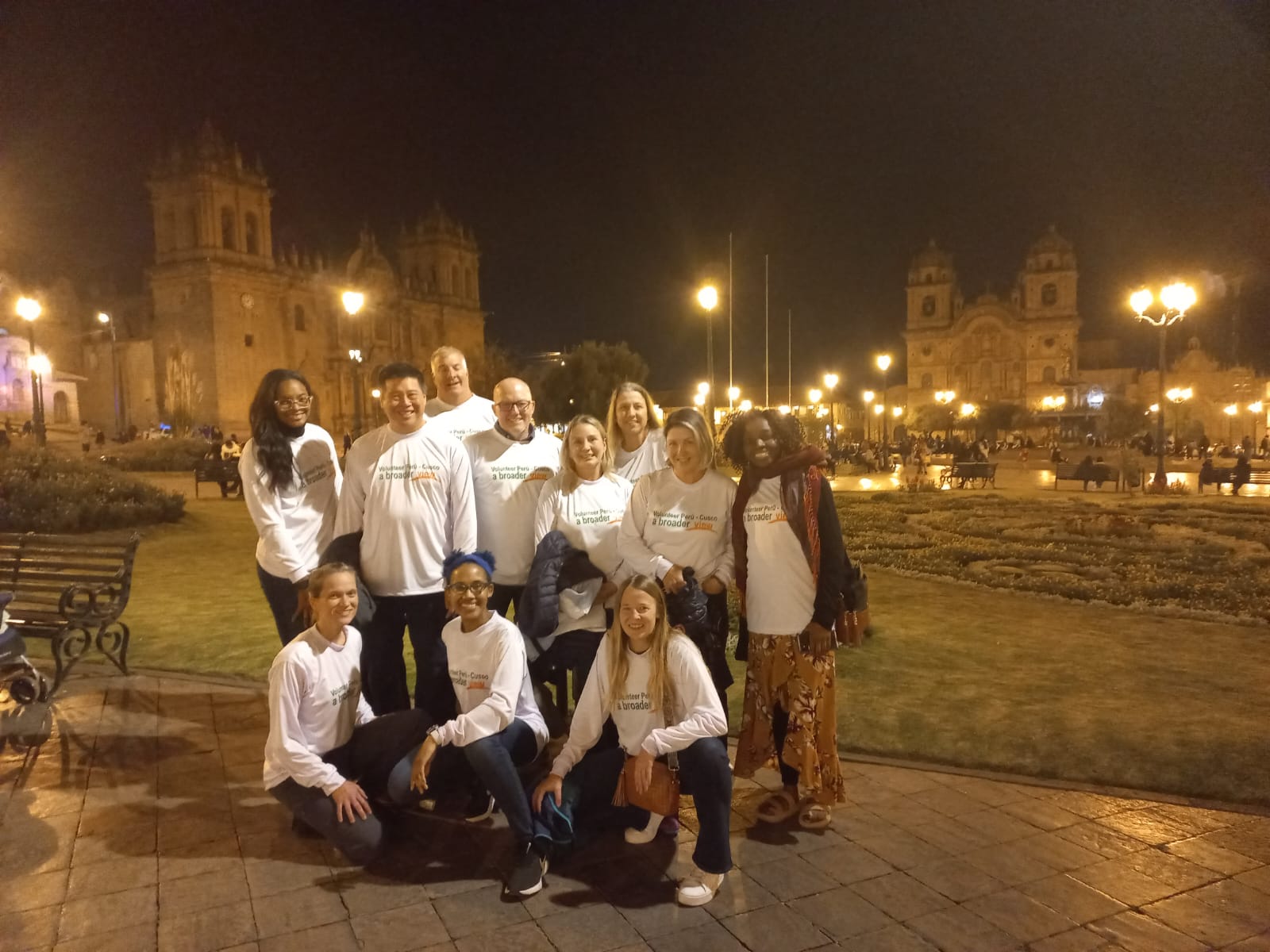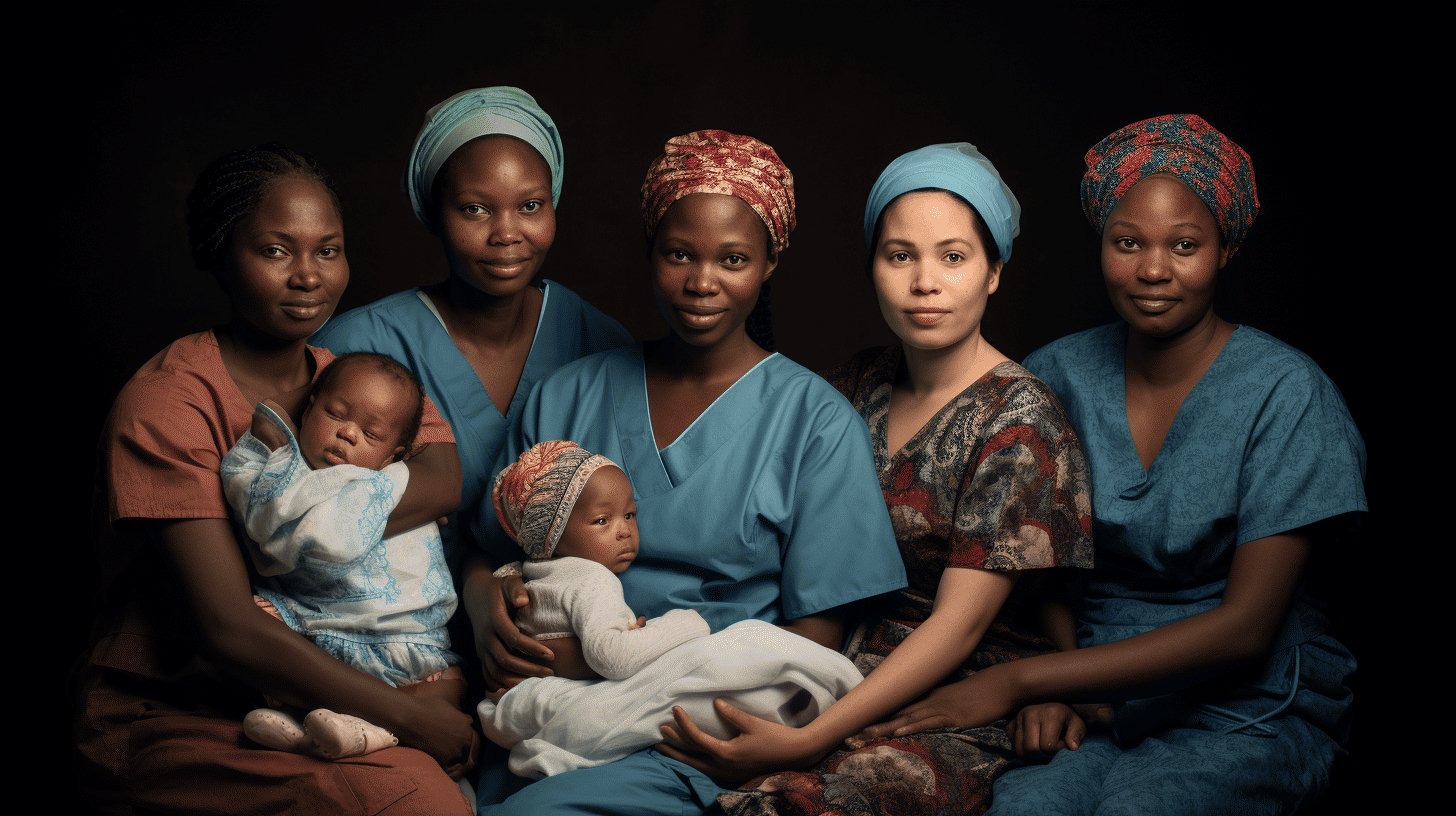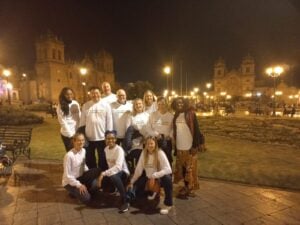Have you ever dreamt of making a difference in the world by helping those in need? If so, joining a global medical mission could be the perfect opportunity for you. In this article, we will explore the world of global medical missions and how you can get involved. Whether you are a doctor, nurse, or healthcare professional, your skills and expertise can make a significant impact on the lives of others.
Global medical missions provide vital healthcare services to underserved communities around the world. These missions are organized by various organizations, including Doctors Without Borders, a renowned international humanitarian organization. They aim to address preventable health challenges and provide life-saving care in regions where healthcare access is limited or non-existent.
In this article, we will delve into the work of Doctors Without Borders and other similar organizations, as well as the costs and challenges associated with volunteering in global medical missions. We will also discuss the impact and benefits of participating in these missions and how they contribute to capacity building in local healthcare systems.
So, if you are ready to embark on a journey that combines your passion for healthcare with a desire to help those in need, let’s explore the world of global medical missions together.
Global Medical Missions – Overview
Global medical missions are an essential part of addressing healthcare challenges in underserved communities around the world. These missions aim to provide much-needed medical care to populations that lack access to essential health services. Let’s take a closer look at the importance and impact of global medical missions.
Addressing Preventable Health Challenges
According to the World Health Organization (WHO), approximately 800 million people worldwide do not have access to essential healthcare services. This lack of access puts these individuals at a higher risk of preventable diseases and health issues. Global medical missions play a crucial role in addressing these challenges by bringing healthcare professionals and resources to these communities.
By offering medical expertise and services, these missions can provide preventative treatments, immunizations, and essential health screenings. They also work towards improving prenatal and postnatal care, reducing infant and maternal mortality rates, and promoting nutrition and hygiene education. Through these initiatives, global medical missions help prevent the spread of diseases, improve overall health outcomes, and empower individuals to take charge of their well-being.
Life-saving Care Provision
The unfortunate reality is that millions of children die each year before the age of five, mainly from preventable diseases. This harrowing statistic, also reported by WHO, underscores the urgency and importance of global medical missions. These missions contribute significantly to providing life-saving care to children and adults in need.
Medical professionals volunteer their time, skills, and expertise to perform critical surgeries, administer medications, and offer vital treatments to individuals who otherwise would not have access to these services. By doing so, they help save lives, alleviate suffering, and improve the quality of life for countless individuals and communities.
Did You Know?
- Approximately 10 million children die annually before reaching the age of five, primarily due to preventable diseases. (WHO)
Global medical missions make a significant impact on improving healthcare outcomes and overall well-being in underserved communities worldwide. With their dedication and tireless efforts, they provide a ray of hope to those facing health challenges.
In the next section, we will explore the valuable contributions of an exemplary organization dedicated to global medical missions, Doctors Without Borders.
How Doctors Without Borders Contributes
Doctors Without Borders, also known as Médecins Sans Frontières (MSF), is a renowned international medical humanitarian organization. With their selfless efforts, they play a crucial role in providing lifesaving medical care to those most in need. Here’s a closer look at how Doctors Without Borders contributes to global medical missions:
Delivering Emergency Medical Aid
Doctors Without Borders is often at the forefront of responding to emergencies and providing immediate medical aid. Whether it’s a natural disaster, conflict zone, or disease outbreak, they swiftly mobilize their teams to deliver vital medical assistance. This includes setting up field hospitals, providing surgical interventions, and offering primary healthcare services to affected populations.
Tackling Disease Outbreaks
Doctors Without Borders has been instrumental in fighting against the world’s deadliest diseases. They actively work towards combating outbreaks such as Ebola, HIV/AIDS, tuberculosis, and malaria. Their expertise in disease prevention, diagnosis, and treatment helps to save countless lives and prevent the further spread of these diseases.
Providing Specialized Care
One of the unique strengths of Doctors Without Borders is their ability to offer specialized medical care. They have highly skilled medical professionals who provide specialized treatments like pediatric care, obstetrics, and surgical care in remote and challenging environments. This ensures that those who need access to quality healthcare, regardless of their circumstances, receive the care they deserve.
Advocating for Access to Healthcare
Aside from providing direct medical care, Doctors Without Borders is also deeply committed to advocating for improved healthcare policies. They address the structural and systemic issues that hinder access to healthcare services for many vulnerable communities. By raising awareness, conducting research, and engaging in policy discussions, they strive for long-term solutions to healthcare disparities.
Training and Capacity Building
Doctors Without Borders places a strong emphasis on training local healthcare workers and strengthening healthcare systems in the communities they serve. They work hand-in-hand with local medical staff, sharing knowledge and expertise, and providing training programs. By building local capacity, they empower communities to better respond to medical emergencies and ensure sustainable access to healthcare even after their mission is complete.
In the words of Joanne Liu, the former International President of Doctors Without Borders, “We do not wait for permission to intervene or for the security situation to improve. We treat those most in need, irrespective of their race, religion, or political affiliation.” Doctors Without Borders truly embodies the spirit of selflessness and compassion, making a remarkable contribution to global medical missions and saving countless lives in the process.
Other Organizations Offering Global Medical Missions
If you’re passionate about global health and want to make a difference, there are several organizations you can join to participate in medical missions. These organizations provide opportunities for healthcare professionals and other individuals to contribute their skills and resources to communities in need around the world. Here are a couple of notable ones:
International Medical Corps
International Medical Corps is a humanitarian organization that provides emergency medical assistance and healthcare training to those affected by natural disasters, conflicts, and other crises. They work in over 30 countries, delivering essential healthcare services and building local capacity to ensure sustainability.
Some key points about International Medical Corps:
- They have a strong network of healthcare professionals, including doctors, nurses, and mental health specialists, who volunteer their time and expertise.
- They prioritize delivering healthcare to those living in war-torn areas, refugee camps, and communities affected by epidemics or natural disasters.
- International Medical Corps focuses not only on immediate medical needs but also on long-term solutions, such as training local healthcare workers and improving healthcare infrastructure.
Mercy Corps
Mercy Corps is a global organization that specializes in delivering emergency relief and development programs in some of the world’s most challenging environments. While they are not solely focused on medical missions, they provide healthcare services as part of their comprehensive efforts to alleviate poverty, suffering, and oppression.
Here are a few key points about Mercy Corps:
- They work with local communities to identify their needs and develop sustainable solutions that address both immediate and long-term health challenges.
- Mercy Corps collaborates with local partners, governments, and other organizations to deliver medical services, improve healthcare systems, and promote health education.
- They emphasize the importance of community participation and empowerment, ensuring that communities have a voice and ownership in the healthcare initiatives implemented.
Both International Medical Corps and Mercy Corps offer opportunities for professionals and non-medical volunteers to join their teams. By joining their medical missions, you can contribute to providing life-saving care, addressing preventable health challenges, and making a positive impact on the lives of vulnerable populations.
While these are just two examples, there are many other organizations out there that focus on global medical missions. Researching and connecting with these organizations will allow you to find the best fit for your skills, interests, and availability.
Whether you’re a healthcare professional looking to give back or an individual with a strong desire to make a difference, participating in global medical missions can be a fulfilling and impactful experience. It’s an opportunity to step outside your comfort zone, immerse yourself in a new culture, and contribute to improving the health and well-being of individuals and communities in need.
“By joining global medical missions, you can contribute to providing life-saving care and making a positive impact on the lives of vulnerable populations.”
Costs and Challenges of Volunteering in Global Medical Missions
Volunteering in global medical missions can be a life-changing experience that allows you to make a difference in the lives of those who lack access to essential healthcare services. However, it’s important to be aware of the costs and challenges that come with this type of opportunity. In this section, we will explore some of the key considerations when it comes to volunteering in global medical missions.
Cost Considerations
One of the first things to keep in mind is that participating in global medical missions often involves costs. While the exact expenses can vary depending on the organization and location, it’s important to budget for the following:
- Travel expenses: This includes airfare, transportation to and from the mission site, and any necessary vaccinations.
- Accommodation and meals: Depending on the organization, volunteers may be responsible for covering their own accommodations and meals during the mission.
- Insurance: It’s crucial to have adequate medical and travel insurance to ensure you are protected in case of any unforeseen circumstances.
- Supplies and equipment: In some cases, volunteers may be required to bring their own medical supplies and equipment or contribute to their cost.
It’s important to note that not all organizations charge volunteers a fee, and some may provide financial assistance or offer scholarships to help offset the costs. Researching different organizations and their fee structures can help you find an opportunity that aligns with your budget and financial situation.
Physical and Emotional Challenges
Volunteering in global medical missions can be physically and emotionally demanding. It’s essential to be prepared for the challenges that may arise during your time abroad. Here are some factors to consider:
- Difficult working conditions: Medical missions often take place in resource-limited settings, where medical facilities may be basic or lacking essential equipment and supplies. Volunteers should be ready to adapt to these conditions and be resourceful.
- Language barriers: Communicating with patients and local healthcare staff may be a challenge if you are not fluent in the local language. However, organizations often have interpreters or translators to facilitate communication.
- Cultural differences: Each country has its own cultural norms and practices, and volunteers should be respectful and open-minded towards these differences.
- Physical and emotional toll: Providing healthcare in underserved communities can be emotionally draining. Volunteers may encounter difficult cases, witness suffering, and face challenging ethical decisions. It’s essential to practice self-care and seek support when needed.
While these challenges may seem daunting, many volunteers find the experience immensely rewarding and fulfilling. It’s important to approach the opportunity with a positive attitude, flexibility, and a willingness to learn and grow.
“Volunteering abroad in medical missions can be physically and emotionally challenging, but it is also incredibly rewarding. It allows you to step outside your comfort zone, learn about different cultures, and make a meaningful impact on people’s lives.”
Impact and Benefits of Global Medical Missions
Global medical missions have a profound impact on both the communities they serve and the healthcare professionals who volunteer their time and skills. Let’s explore some of the benefits and the positive difference that these missions make:
Making a Difference
Global medical missions provide vital healthcare services to underserved populations around the world. By volunteering in these missions, healthcare professionals have the opportunity to make a tangible difference in the lives of those in need. Whether it’s treating infectious diseases, providing vaccinations, or offering primary healthcare services, these missions play a crucial role in improving the health and well-being of vulnerable populations.
Capacity Building in Local Healthcare Systems
Global medical missions are not just about short-term relief; they also aim to build the capacity of local healthcare systems. By training local healthcare workers, sharing best practices, and providing resources, these missions help improve the long-term sustainability of healthcare in underserved regions. This capacity building approach ensures that communities can continue to access quality healthcare even after the mission has concluded.
Personal and Professional Growth
Volunteering in global medical missions offers healthcare professionals the chance to grow both personally and professionally. By working in resource-limited settings with diverse patient populations, volunteers are exposed to unique challenges and gain valuable experience that can enhance their clinical skills and cultural competency. This immersive experience stretches their abilities, broadens their perspective, and fosters resilience, adaptability, and problem-solving skills.
Cultural Exchange and Global Understanding
Medical missions provide an opportunity for cultural exchange and foster a greater understanding of global healthcare challenges. Volunteers have the chance to work alongside local healthcare professionals, collaborate with community members, and immerse themselves in the local culture. This exposure helps break down stereotypes and promote cross-cultural understanding, leading to increased empathy and compassion in healthcare delivery.
Networking and Collaboration
Global medical missions bring together healthcare professionals from different backgrounds and specialties. These missions provide a platform for networking, collaboration, and knowledge-sharing. Volunteers have the opportunity to connect with like-minded professionals, exchange ideas, and learn from each other’s experiences. These connections can lead to long-lasting partnerships and the development of innovative approaches to healthcare.
The impact of global medical missions goes beyond the individuals directly affected. It ripples through communities, strengthening healthcare systems, empowering local healthcare providers, and ultimately improving the overall health and well-being of populations. By participating in these missions, healthcare professionals contribute to creating a more equitable and accessible healthcare landscape worldwide.
“Volunteering is the ultimate exercise in democracy. You vote in elections once a year, but when you volunteer, you vote every day about the kind of community you want to live in.” – Unknown
Conclusion
In conclusion, participating in global medical missions is a powerful way to make a difference in the lives of those who lack access to essential healthcare services. By joining organizations like Doctors Without Borders and others, volunteers have the opportunity to provide life-saving care and address preventable health challenges in communities around the world.
While there are costs and challenges associated with volunteering in these missions, the impact and benefits far outweigh any hardships. Volunteers not only contribute to the well-being of individuals and communities but also play a vital role in capacity building within the local healthcare systems.
By supporting and engaging in global medical missions, individuals can have a profound impact on the lives of others and experience personal growth and fulfillment. If you’re interested in making a difference through global volunteer work, consider exploring opportunities with A Broader View Volunteers. Learn more about our meaningful and life-changing experiences by visiting our website at www.abroaderview.org. Together, let’s create a better world for everyone.
Frequently Asked Questions
- What is Doctors Without Borders?
Doctors Without Borders, also known as Médecins Sans Frontières (MSF), is an international humanitarian organization that provides medical assistance to people in need, irrespective of their race, religion, or political affiliation.
- How can I join the global medical missions of Doctors Without Borders?
To join the global medical missions of Doctors Without Borders, you can visit their website, www.AbroaderView.org, and fill out an application form. They have a selection process that includes interviews and assessments to determine your suitability for the missions.
- What qualifications are required to join Doctors Without Borders as a medical professional?
Medical professionals, such as doctors, nurses, surgeons, anesthesiologists, and others, are sought after by Doctors Without Borders. To join as a medical professional, you typically need a valid medical license, relevant experience, and a willingness to work in challenging and resource-limited environments.
- Are there any specific language requirements to join the medical missions?
Doctors Without Borders operates in many countries worldwide, so having proficiency in languages widely spoken in medical contexts, such as English, French, Spanish, Arabic, and Portuguese, can be beneficial. However, specific language requirements may vary depending on the mission location.
- Do I need to cover my own travel expenses to join the missions?
Doctors Without Borders covers the travel expenses of its volunteers, including international and domestic flights. They also provide accommodation, food, and a stipend to cover basic needs during the mission.
-
Safe Solo Volunteering Abroad | Empowerment FemalesThrough Service with ABV

Embrace the adventure of a lifetime with ABV’s supported solo volunteering programs. Create lasting friendships, make a real difference, and explore the world safely under a supportive umbrella. Recommend Peru, Ecuador, Colombia, and more. Table of Contents Introduction to ABV and Solo Volunteering Traveling solo can be a thrilling yet daunting endeavor. A Broad View…
-
Empowerment Through Sustainable programs: Volunteer Opportunities in Peru Cusco

Discover empowering volunteer opportunities in Peru Cusco with www.abroaderview.org. Support sustainable programs and make a positive impact while gaining valuable experiences.
-
Midwives & Obstetricians: Empower Mothers & Babies Abroad

Discover how midwives and obstetricians from abroad can empower mothers and babies through the programs offered by www.abroaderview.org. Make a difference today.



